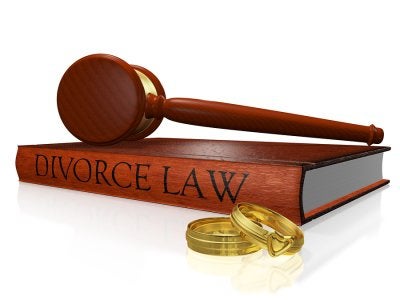-
What Does Use and Possession Mean in A Divorce Proceeding?
Understanding How a Divorce Proceeding Works
When a married couple decides to divorce, the process can be long and complex. Once the type of divorce has been decided, one party will file, and the other will respond. After this comes discovery, during which the parties can request information and documents from each other. This information will include things like debts and assets, how each party will speak on certain issues, and which witnesses will be asked to testify in court. Negotiations and mediation can happen during this phase, and each spouse’s position will be clarified. While this is happening, the court will sometimes put forth temporary orders regarding things like child custody and the dispensation of marital property. One legal term that might be used during this time is “use and possession.” What does it mean, and why does it matter?

Why “Use and Possession” Matters in a Family Law Divorce Case
Use and possession is meant to give children stability, by granting them use of the family home and possessions. In a case in which no children are involved, use and possession is not taken for granted. While ensuring that children are protected matters a great deal, use and possession isn’t concerned with distribution of assets for the benefit of adults.
Legal Meaning of “Use and Possession” in Divorce Law
The courts can grant use and possession of the family home and personal property during the divorce proceedings, and for up to three years after the divorce is finalized. The property involved includes the principal residence of the family, as well as items that are primarily used for the family, like appliances, vehicles, electronics, and furniture. Anything acquired before marriage or through inheritance, and anything excluded by a prenup or other legal agreement is excluded from the umbrella term of family property.
Purpose of Use and Possession Orders in a Divorce Child Custody Proceeding
Use and possession orders are used to provide stability for minor children. Generally, the custodial parent may request and will probably be granted use and possession of the family home and other possessions. This doesn’t mean that this is the final dispensation: that will be resolved once the divorce settlement is finalized. Giving the custodial parent use and possession simply allows the children to maintain a sense of normalcy, continuing to live in their family home.
Who Can Be Granted Use and Possession in Divorce Proceeding?
When deciding use and possession, the court takes several factors into consideration. The needs of the children are the primary focus, but the way in which the order would affect the spouses is contemplated, as well. The point is not to cause anyone undue hardship, but to make the process go more smoothly. Note: sometimes, “exclusive use and possession” orders are granted, and these are commonly called “kickout orders,” because they mean that one party must vacate the premises. This is typically done in cases of domestic violence and abuse. If the use and possession order is extended beyond the finalization of the divorce, it’s usually with the caveat that if the person remarries, the order is terminated.
Legal and Financial Implications in Divorce Law
It’s important to note that use and possession orders are temporary, and don’t dictate the final division of property. For instance, while the custodial parent may be granted the use of the family home and vehicle during the divorce proceedings, this doesn’t mean that the house won’t be sold once the divorce is settled, and the profits divided. The family home is still a shared asset, and as such, needs to be handled in the divorce settlement. Because Maryland is an equitable distribution state, the law is focused on dividing assets fairly, and this can be a complicated process.
Finding a Competent Divorce Law Firm
When you are looking for a divorce law firm with experience and a reputation for excellence in family law, contact the Law Office of Kent L. Greenberg. Since 1981, we have been successfully assisting clients in the Baltimore County area, and our seasoned professionals work hard to resolve our clients’ legal issues, analyzing each case to determine the best strategies for handling each unique situation. Each family and divorce law issue is unique, and there is no one solution to meet every need. Having effectively handled numerous cases in our decades of experience, our firm understands the laws and protocols specific to Maryland, and will put our knowledge and expertise to work for you. When you have a domestic legal issue, you can trust the Law Office of Kent L. Greenberg to work to achieve the best possible decision in line with your best interests. If you are looking for legal services in Carroll County, Pikesville, Owings Mills, or Baltimore County, Maryland, contact us through our website to schedule a consultation.
-
Steps for Budgeting After Divorce
Rebuilding Financial Stability After the Divorce Process
When going through a divorce, you will find every aspect of your life significantly impacted. Divorce is emotionally draining, and can cause stress and anxiety, along with many other feelings stirred up by the end of a marriage. Additionally, it has a massive impact on a person’s finances. The dissolution of a marriage can means loss of income, division of assets, and a change in living arrangements. Both parties may be left financially vulnerable, so it is important to be proactive in rebuilding your financial stability. While this can be a long and arduous process, it all starts with a post-divorce budget.

Assessing Your New Financial Reality
The first step in taking control of your financial situation during a divorce is to go through all your financial documents. Credit card statements, loans, paperwork for joint assets, and an inventory of household goods that may end up being negotiated in court. Make a list of all sources of income and all expenses, to get a clear picture of your financial situation. In addition to your salary, list bonuses, investments, social security, retirement, and any other sources of income. You don’t have to be completely specific regarding all your expenses, but include things like rent or mortgage, insurance, vehicle loans, credit cards, utilities, food, and other monthly expenses. Once you understand your financial standing, including how much money is coming in and going out, you will have a firmer footing, allowing you to move forward.
Setting Financial Goals for a Budget After Divorce
When determining your budget after the divorce, make sure you are thinking about your net income, rather than your gross income. Remember that taxes, payroll deductions, and social security will all come out of your paycheck up front, and the money you will have to work with will be what is left. Write down all your essential expenses, including housing, child support or alimony, insurance, groceries, utilities, and transportation. Identify the essential expenses, and subtract those from your net income before you begin considering non-essentials. With your essential life expenses, work on building an emergency savings fund and planning for your future. This may seem unrealistic, but it is important to think about unexpected expenses and planning for life moving forward.
How to Budget After Divorce with Practicality in Mind
Once you have calculated the amount of money you will need for your living expenses, it’s time to add in the non-essentials. This includes entertainment, dining out, and other niceties that aren’t necessary. Understanding both essential and discretionary expenses allows you to strategize for things that are important to you. Consider using budgeting software to help you stay on your budget, and review it periodically to make sure you are on the right track.
Adjusting to Single Income Living
If you have been accustomed to being part of a two income family, making the shift to a single income can be challenging. This is why it is important to have an experienced divorce attorney on your side during divorce proceedings, to make sure the settlement is fair and equitable. If you are the spouse paying alimony or child support, the goal should be to provide support without stripping you of the means to make ends meet. If you receive alimony or child support through your settlement, it should be enough to help you support yourself. In either case, it may be necessary to pick up a side job, like freelance work, to boost your monthly income.
Revisiting Legal and Financial Paperwork
A divorce settlement is intended to be final, but there are some cases in which it can be revised. If either party presented fraudulent information to the court, or if the income or expenses of either party changes, there is a possibility that the judgement will be set aside and revised. However, courts typically take a limited approach to adjustments, having to do with income fluctuations. A person losing his or her job is unlikely to have reduced spousal support, and an investment that increases or decreases in value probably won’t be a significant factor in revisiting the settlement. There are some cases in which there is an unforeseeable change, like an unexpected inheritance or a significant drop in the value of an asset.
Resources for Financial Recovery Post Divorce
As with every aspect of a divorce, you do not have to go alone. With the help of a family law attorney, you can successfully navigate this sometimes harrowing process, to achieve a fair settlement and have a reasonable handle on your finances as you move forward. Consider reaching out to a financial professional, too, if you are struggling. A trained accountant can help you make sense of your finances and build a better budget.
Consult the Experts in Divorce Law for Help with Every Aspect of Your Divorce
Since 1981, the Law Office of Kent L. Greenberg has been successfully assisting clients in the Baltimore County area. Our seasoned professionals work hard to resolve our clients’ legal issues, comprehensively evaluating each case to determine the best strategies for handling each unique situation. Each divorce and family law issue are unique, and there is no one solution to meet every need. Having effectively handled numerous cases in our decades of experience, our firm understands the laws and protocols specific to Maryland, and will put our knowledge and expertise to work for you. When you have a domestic legal issue, you can trust the Law Office of Kent L. Greenberg to work to achieve the best possible decision in line with your best interests. If you are looking for legal services in Carroll County, Pikesville, Owings Mills, or Baltimore County, Maryland, contact us through our website to schedule a consultation.
-
Why Legal Guidance is Essential in Your Divorce Case
The Emotional and Legal Intricacies of a Divorce Case
Divorce is a complex process and can be emotionally overwhelming. Deciding to divorce should never be done lightly, since it is one of the most important decisions a person can make. Before deciding on divorce, take some time to reflect and determine whether it’s the right decision. A divorce is more than just a breakup, and impacts every aspect of the couple’s lives, including their finances and their relationships with others in their family. After thoughtful consideration, if you decide that a divorce is your only option, remember that divorce is legally complicated. Educating yourself about the divorce process and the laws in your state can be helpful, but ultimately, you need an experienced attorney to help you navigate this new territory.

The Challenges of Family Law and Divorce
As complicated as divorce can be, it is even more difficult when there are children involved. When there are children in a family that is divorced, the needs of the children must be prioritized. Within the family, it is important to keep communication open, explaining things in an age appropriate way and reassuring the children, to help them cope with their changing family situation. From a legal standpoint, child custody and support must be determined following state law. A divorce lawyer can help you develop a coparenting plan that details how parents will share the responsibilities of raising children, taking into consideration schedules, holidays, and how you will communicate. It can be difficult to find solutions regarding these sensitive subjects without the support of a third party who is not emotionally invested.
Navigating Complex Legal Processes in Divorce Law
Sometimes, couples choose to settle their divorce themselves, but this can be a poor decision. An agreement that isn’t executed correctly may be non-enforceable, and this can end up drawing out the divorce process or causing additional expense. What’s more, if you are not an attorney, you may have trouble understanding complex legal terms, and this can put you at a disadvantage. A skilled divorce attorney knows how to protect your legal rights and can anticipate future disputes and draft the precise language and legal safeguards that will prevent these. Having an attorney on your side means your paperwork will be drafted and filed correctly, the letter of the law will be followed, and all deadlines will be met.
How a Divorce Lawyer Helps Ensure Fair Outcomes in Property Division and Custody
In addition to a co-parenting agreement, property division, spousal support, and child custody will need to be determined. Determining spousal support can be tricky, because it is based on factors like each spouse’s financial needs and earning ability, as well as the length of the marriage. Coming up with an equitable plan for the family as you move forward into a new reality requires the expertise of a divorce attorney.
Preventing Costly Mistakes with the Help of a Divorce Case Lawyer
Divorce can be an expensive process, and it may seem like you can save money by settling the case yourself instead of hiring an attorney. Unfortunately, this can lead to problems later. A divorce lawyer knows how to scrutinize financial information and look for hidden assets, and this can prevent an unequal division of property or unfair spousal support. Further, while a divorcing couple may miss some long-term aspects of financial planning, an attorney has a full understanding of issues like inflation, retirement, and tax implications. Having an expert working on your divorce settlement makes it more likely that you will end up with a fair settlement, with neither party at a disadvantage.
The Long-Term Impacts of Legal Guidance: How Long Does a Divorce Case Last?
The length of a divorce case can vary, depending on the complexity of the negotiations. While a simple, uncontested divorce can sometimes be settled in just a few months, contentious divorces can take a year or longer. Having an experienced attorney on your side means making the most of that time, drafting a plan that will work best for your family in the long run. A forward-thinking attorney will help you reach a settlement that takes future challenges into consideration, so that the risk of post-divorce disputes is lowered.
Finding the Right Family Law and Divorce Attorney
All attorneys are not the same. When you are going through a divorce, you need an advocate who will understand your situation and help negotiate a settlement that is in everyone’s best interests. Look specifically for attorneys who specialize in your type of divorce, and research the attorneys you are considering so that you can evaluate their experience and make the right decision.
Whatever Your Divorce Case Status, Trust Us to Help
Whether you are just beginning the divorce process or stuck in a legal quagmire and need assistance finding your way out, it helps to have an experienced, compassionate family law attorney on your side. Since 1981, the Law Office of Kent L. Greenberg has been successfully assisting clients in the Baltimore County area. Our seasoned professionals work hard to resolve our clients’ legal issues, comprehensively evaluating each case to determine the best strategies for handling each unique situation. Each divorce and family law issue are unique, and there is no one solution to meet every need. Having effectively handled numerous cases in our decades of experience, our firm understands the laws and protocols specific to Maryland, and will put our knowledge and expertise to work for you. When you have a domestic legal issue, you can trust the Law Office of Kent L. Greenberg to work to achieve the best possible decision in line with your best interests. If you are looking for legal services in Carroll County, Pikesville, Owings Mills, or Baltimore County, Maryland, contact us through our website to schedule a consultation.
-
Avoid These Common Child Custody Mistakes
When you’re going through a divorce and children are involved, the stakes are higher and you have many more factors to consider throughout the divorce process. It’s very important to hire an experienced lawyer for child custody issues during a divorce or legal separation in order to protect your rights as a parent and protect your child. Here is a look at the most common mistakes parents make during child custody cases and how hiring a child custody lawyer in Owings Mills, MD, can help you avoid mistakes like these.

Not Understanding Your State’s Child Custody Laws
Many parents go into a child custody case assuming that because they are the child’s parents, their rights are automatically protected and they will get whatever they ask for. However, many different factors can impact your custody agreement and influence the court’s decision. When you work with an experienced child custody attorney, they can help you understand your state’s child custody laws so that you know what to expect and how to best prepare for the court process.
Thinking You Don’t Need a Formal Child Custody Agreement
Another huge mistake that parents make is thinking that they don’t need a formal child custody agreement in a divorce or separation. Even if you and your former spouse or partner get along, it’s in your best interest and the child’s best interest to enter into an agreement and sign formal child custody papers. You may get along now, but circumstances can change in the future, and it’s best to protect yourself from the start.
Failing to Prioritize the Child’s Best Interests
In some cases, conflict between the parents can end up impacting negotiations for child custody, child support, parenting time, and other factors involved in the care of the child. Some parents end up putting their own emotions and interests ahead of those of their child, which can have a significant negative impact on the child. You and your former spouse or partner should work with an experienced family law attorney, mediator, or child advocate to ensure you’re putting your child’s best interests first.
Engaging in Negative Behavior
Even if you and your former spouse or partner don’t get along or have trouble communicating, you should take care to avoid engaging in negative behavior. Negative behavior can influence a judge’s decision in your child custody case and also have detrimental effects on your child’s happiness and mental health.
Ignoring Legal Advice
When you work with an experienced divorce attorney or child custody attorney, they will give you expert advice that is based on the details of your case, their deep knowledge of child custody laws, and their years of experience dealing with cases that are similar to yours. Take their advice seriously and follow their recommendations and guidance. Ignoring their advice could have a negative impact on your case.
Talking Badly About the Other Parent to the Child
Many judges explicitly prohibit parents from speaking badly about each other to their child. If a court finds evidence that you have been saying negative, harmful, or toxic things about your child’s other parent to the child, it can affect your ability to retain custody or get the parenting time you want. You may also harm your relationship with your child.
Not Communicating Effectively With the Other Parent
Entering into a fair child custody agreement and maintaining a co-parenting arrangement requires clear, healthy communication. If you don’t feel that you can communicate effectively with your former spouse or partner, you may need to consider using a third-party mediator or counselor to help you ensure consistent and clear communication.
Not Being Properly Prepared for Court or Coaching Your Child
Your child custody attorney will help you prepare for court and understand the legal process. If you are not prepared for court, negotiations, or meetings, your case may suffer and you may be seen as irresponsible. Another common mistake that parents make in child custody cases is coaching their child to say certain things. A judge can usually tell if a child has been coached by one of the parents.
Lying to the Judge or Your Attorney
Being honest with your attorney and the judge or mediator in your case is crucial. Omitting facts or information or outright lying can make it harder for your attorney to handle your case, and it can have a negative effect on the outcome of your parenting or child custody agreement. In some situations, a lie can be construed as perjury and can result in legal consequences. Be as honest and straightforward as possible throughout your case.
How Can These Mistakes Affect Your Child Custody Case?
Making these mistakes can have a negative outcome on your child custody case. You may not get the child custody agreement or parenting time that you want, or you may not get physical and/or legal custody of your child at all. Some of these mistakes can also impact your relationship with your child and affect your child’s mental health. It’s best to work with an experienced attorney throughout the divorce, legal separation, or child custody process to avoid mistakes like these.
How Can the Law Office of Kent L. Greenberg Help?
Kent L. Greenberg is a skilled, experienced child custody attorney in Owings Mills, MD, who works with clients throughout Maryland. He can evaluate your case and gather information, documentation, and evidence needed to support your rights as a parent. He can work closely with your former spouse or partner’s attorney and negotiate on your behalf. He can also act as a mediator and help you navigate conflicts or complex situations. Call the Law Office of Kent L. Greenberg now or contact us online to schedule a consultation and find out how Mr. Greenberg and our team can help you navigate complex child custody issues in Maryland.
-
How a Prenuptial Agreement Can Impact Your Divorce?
Given the consistently high divorce rates in modern times, many couples consider it prudent to establish a prenuptial agreement before the wedding. A prenup can protect both spouses, although each of them should consult their own family lawyer in Owings Mills before signing the document. If the marriage doesn’t last, a divorce attorney can offer state-specific guidance regarding the impact of the prenup on the divorce settlement.
 The Benefits of a Prenup
The Benefits of a PrenupDivorce doesn’t always have to be a long, drawn-out process filled with arguments and ill will. Divorce mediation is a viable alternative, and having a prenuptial agreement in place may make mediation more likely to succeed. That’s because a prenup can take care of many of the issues that need to be settled before a divorce is finalized. Even if mediation doesn’t succeed in settling the rest of the issues, or if you and your spouse would rather not try mediation, having a prenup in place can lessen the headaches of a court proceeding. It may reduce discovery, and in doing so, reduce legal fees.
The Disadvantage of a Prenup
The main downside of prenuptial agreements isn’t one that will apply to every divorcing couple. It will occur if your spouse decides to contest the validity of the agreement. Your spouse will need a legally acceptable reason for asserting that the agreement is invalid. Even if grounds to contest the validity are lacking, the process of proving the validity of the document can make the divorce take much longer. A valid prenup is one that was not prepared or signed with any of the following present:
Fraud (i.e., hiding assets)
Duress or coercion
Incompetence
Undue influence
Mistakes
Unconscionable or grossly unfair
It’s worth noting that most prenuptial agreements are found to be valid. If you had your prenup prepared by a family court lawyer, it’s almost certainly going to hold up in court.
The Ways Your Prenup Can Work for You
The exact ways in which your prenup will affect your divorce depends on its provisions. Bring a copy of the agreement to your consult with the lawyer. Your prenup may affect the following areas:
Retirement accounts
Life insurance policies
Division of debts and assets
If you share children with your spouse, your prenup cannot legally affect child custody or child support arrangements.
““
-
Fault-Based Divorce: How to Prove Adultery
Divorce law in Maryland is notoriously complex. In many cases, spouses must endure a lengthy legal separation before the divorce can be finalized. If you can prove fault-based grounds for absolute divorce; however, you may be able to forego the waiting period and move forward with your post-divorce life. If your marriage has deteriorated because your spouse has committed adultery, you should speak with a divorce lawyer near Owings Mills. You may be surprised to learn that proving adultery could be easier than you think.

You do not require definitive proof of adultery.
Many spouses assume that it is necessary to provide hard proof of their spouse’s adultery, such as pictures or videotapes. Although this is a possibility, it certainly isn’t necessary. Maryland divorce law does not require spouses to offer definitive proof that adultery existed. Circumstantial or indirect evidence is sufficient.
You do need to prove your spouse’s disposition of affection.
Maryland divorce law does require a spouse to demonstrate that the other spouse had a “disposition of affection” toward a third party. This simply means that the individual somehow displayed his or her affection toward someone who is not married to that individual. This could take the form of holding hands, kissing, hugging, or even suggestive dancing. For instance, a friend of yours may have witnessed your spouse behaving in an affectionate manner with someone else. The testimony of your friend, perhaps complemented by pictures, may be sufficient to prove your spouse’s disposition of affection.
You do need to prove that an opportunity for adultery existed.
In addition to proving your spouse’s affectionate behavior, you must prove that he or she had the opportunity to commit adultery. This opportunity has to be more conclusive than the mere fact that you weren’t in your spouse’s presence on a 24/7 basis. For instance, you might demonstrate that your spouse spent time in a hotel room with the other individual or was seen entering the residence of the other individual.
You could offer substantial proof if it exists.
Although conclusive proof is not required to prove adultery, it can certainly help your case. It’s important to be honest with your divorce lawyer about your suspicions of adultery. If you were diagnosed with a sexually transmitted disease (STD), this may be all that’s needed to prove adultery. If your spouse became pregnant and paternity tests prove that the child is not yours, this certainly proves adultery.
““
-
Gathering Evidence for Your Child Custody Case
Going through a divorce and establishing child custody requires a lot of preparation and paperwork. It can start to feel like a full-time job in itself, which is one of the many reasons why you should hire a child custody attorney near Owings Mills to do the heavy lifting for you. Your lawyer will guide you in collecting the evidence necessary to present a compelling argument in court.
Parent-Child Contact
If your child isn’t currently living with you, make an effort to contact your child frequently. Call or use video conferencing software to maintain your relationship with your child, and to help him or her cope with the significant changes of divorce. Each time you speak with your child, keep a record of the date, time, and duration. Make notes about whether the other parent attempted to discourage contact between you and your child. If your child is currently living with you, you can still keep a record of contact between your child and the other parent. If the other parent doesn’t have frequent contact, the judge might think that there isn’t much of a relationship between them. Alternatively, the judge might consider whether you are discouraging contact.
Parent-Parent Contact
Family court judges frown upon contentious interactions between parents when a child is a witness. Never provoke an argument, and never contribute to one. Instead, keep a record of all the times your ex disparages you in front of your child, shows an unwillingness to co-parent, or shows signs of mental or emotional instability.
Visitation Logs
Judges like to see that both parents are encouraging the child to have a healthy relationship with the other parent. If your child currently lives with you, you should support a robust visitation schedule with the other parent. If you’ve moved out of the family home, make every effort to see your child regularly. Both parents should keep records of when the visitation occurred, how long it lasted, and whether the visiting parent was late for the pick-up or drop-off. Additionally, make notes about whether the child was returned to you hungry, unhappy, or injured—or with homework incomplete.
““
-
Medication Disputes and Co-Parenting: A Look at Common Problems and Solutions
Even when parents are both committed to co-parenting cooperatively for the benefit of their children, disputes are inevitable. One common area of conflict involves medications and other medical decisions. Although some types of child custody put the power to make these decisions firmly in the hands of one parent, in other cases, parents each have the right to weigh in, and disagreements may arise. Your family attorney in Owings Mills can help you navigate these touchy issues when they occur. Here is a look at some of the common problems that happen regarding medication disputes in co-parenting agreements—and how you can overcome them.
 Common Medication Disagreements
Common Medication Disagreements In most cases, parents do not disagree about giving children medicine for acute illnesses, such as an antibiotic for bronchitis. Instead, parents may find they are not on the same page when it comes to managing chronic conditions, particularly ADHD or ADD. One parent may believe that the child needs to be on medication for attention deficit and/or hyperactivity, while the other parent doesn’t believe in giving children these kinds of medications. Other common areas of dispute are antidepressants or other medications for psychiatric conditions and vaccinations.
Solutions for Medication Disputes
Solving a medication dispute may be as easy as reviewing your child custody agreement. If one party has sole legal custody, then he or she has the exclusive right to make medical decisions for the children. If you have joint legal custody, then both parents must come to agreement on issues regarding medical decisions. If you can’t come to agreement, consult your family law attorney. He or she may recommend mediation, or in some cases, you may wish to return to court for a review of your custody agreement. Even if you haven’t experienced a dispute about medications or other aspects of medical care, it can be helpful to ask your family lawyer to include stipulations about how medical care will be addressed in your child custody agreement, so you can reduce the risk of future complications.
““
-
A Spouse’s Guide to Cruelty and Vicious Conduct
Maryland divorce law is quite restrictive, although a recent change in the rules relaxed the requirements for couples who do not share children and reach agreements on other matters. In nearly all other cases, spouses must live apart for 12 continuous months before they can be granted an absolute divorce, rather than a legal separation. An exception to this rule applies when a spouse has fault-based grounds for absolute divorce, such as cruelty and excessively vicious conduct. A family law attorney near Owings Mills can discuss your case with you and determine if a fault-based divorce is right for you.

Physical Violence
For a court to grant a divorce on the basis of cruelty, your spouse’s actions must be egregious to the extent that they could be said to significantly jeopardize your health or permanently eliminate your happiness. A court is more likely to determine that physical violence constitutes cruelty if the spouse engaged in a pattern of physical violence, has threatened physical violence, or has engaged in mental abuse. Divorce may be granted if this abuse was directed to either you or to a minor child. Acts of physical violence may include instances of marital rape.
Mental Abuse
Courts give mental abuse significant weight when considering whether to grant an absolute divorce for fault-based grounds. Generally, mental abuse must be egregious. For example, the use of profane language alone might not be sufficient to prove cruel treatment. However, the court might consider the use of profane or indecent language to belittle the spouse or otherwise compromise his or her self-respect. Other types of mental abuse include controlling behaviors like isolating the spouse from other family members and friends. Mental abuse can include taunting and making public, false accusations for the purpose of debasing the spouse.
Evidence
Proving cruelty and excessively vicious conduct in court requires the use of physical evidence or witness testimony. Your family lawyer can guide you in establishing proof, such as through the use of medical records, photographs of injuries, and written communications.
““
-
A Divorced Dad’s Guide to Co-Parenting
Co-parenting is much more than just exchanging the kids for visitation. It’s the process of working collaboratively and amicably with your ex for the sake of your kids. Divorce experts tend to agree that co-parenting is the most effective way to raise kids who are well-adjusted and have healthy relationships with both parents, despite the parents’ divorce in the Owings Mills area.
Watch this quick video for some helpful tips on successful co-parenting. You’ll learn the value of reaching out to professionals, like counselors and divorce mediators. You’ll also learn that child custody and visitation agreements might be modified as circumstances change and the children grow older. Always remember to prioritize the well-being of the kids, and set aside the personal feelings you have toward your ex.
